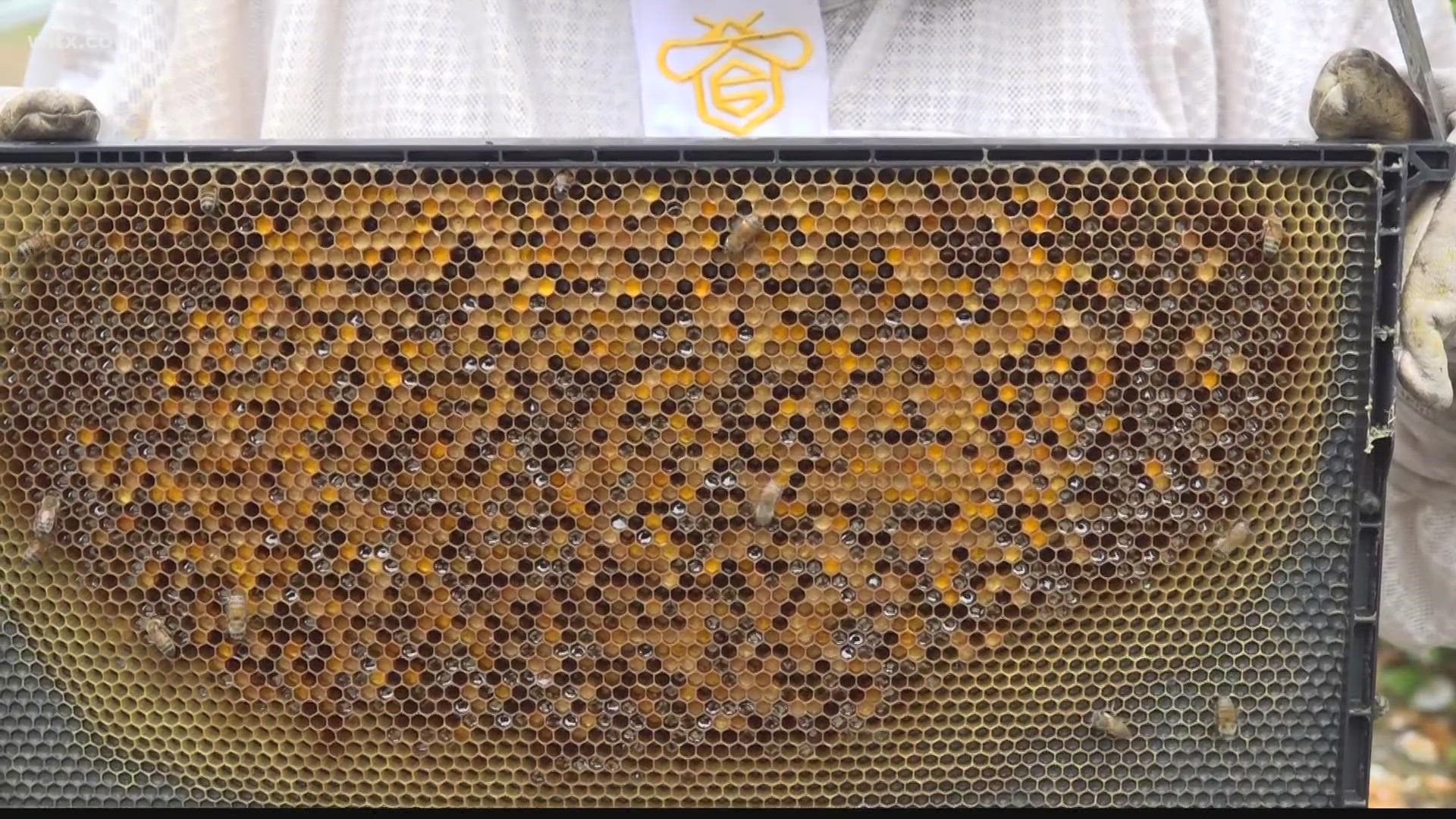COLUMBIA, S.C. — Many plants have taken advantage of the warmth lately and are blooming ahead of schedule. When it’s warm and dry, plants pollinate and provide food for bees.
Bob Walker is the owner and operator of Walker Bee Ranch in Hopkins. He says, “First of all, [the warm], it really helps because it helps stimulate the queen to lay more baby larvae and baby bees.”
Walker has had to take extra precautions with his bee colonies because warmer temperatures can have a significant impact on bees’ behavior and survival.
“I’m in my colonies regularly, usually once a week. I am constantly trying to make space and add boxes to give them more room so they don’t become oversaturated with nectar or pollen,” Walker said.
Pollen is an essential source of protein and nutrients for bees. A higher pollen count can help ensure that bee colonies have enough food to support their growth and reproduction.
There are 14 types of bees in South Carolina. It's essential to take steps to protect these critical pollinators, even if they are in an unwanted area.
“It’s been said that two-thirds of all food we eat has something to do with pollination," Walker said. "All of our vegetables and fruits, just about every tree is pollinated by bees. So without them, we could have some rough times ahead."
Walker says not to spray the bees. "Call a beekeeper, call the South Carolina beekeepers association, call me. Someone will come out and get them for you and give them a good home.”

